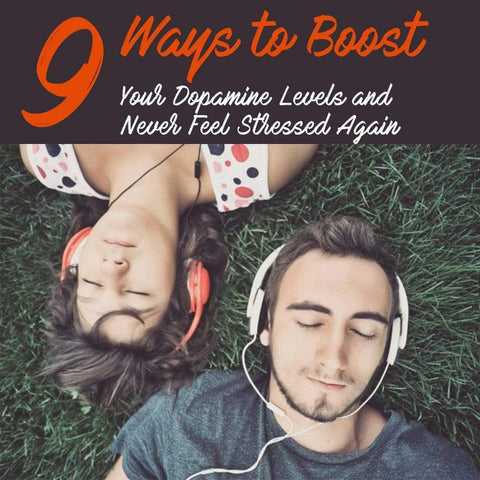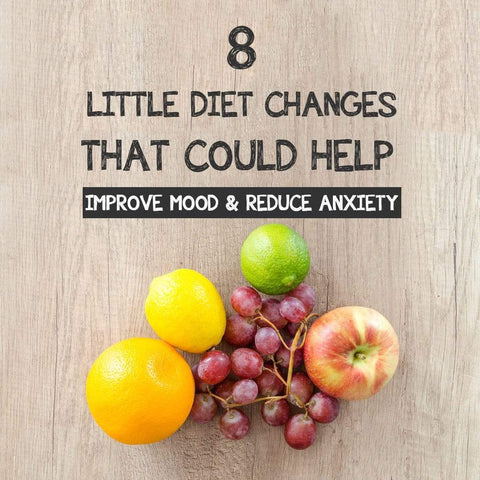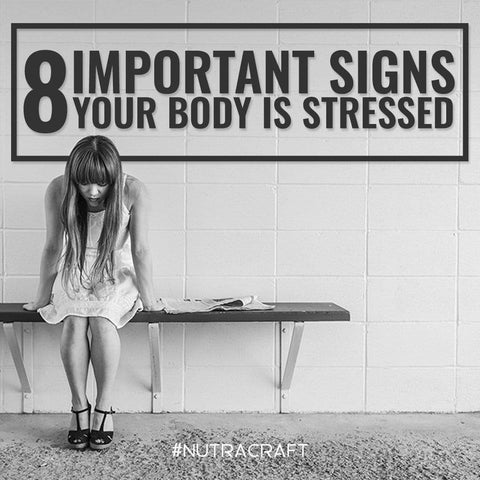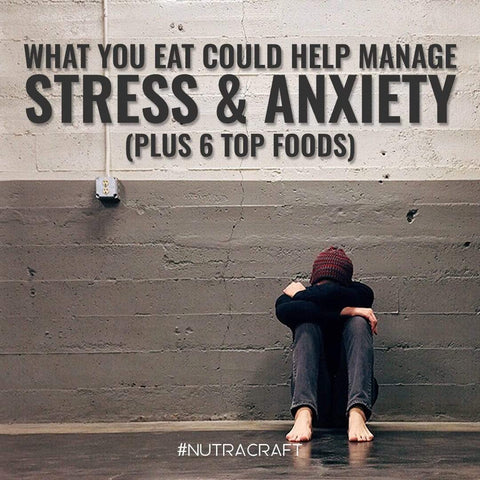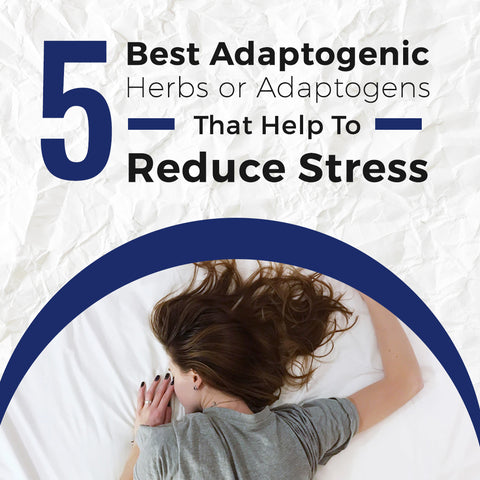An estimated 40 million Americans have an anxiety disorder and many are on anti-anxiety medication 14. Chronic anxiety is a big threat to our health and quality of life.
Drugs can take the edge off but still have short and long term side effects, so are there any other more natural options?
Natural Health And Anxiety/Mood
If natural dietary herbs and supplements can be therapeutic and boost your mood, can’t foods do the same? Yes!
After all, foods contain plenty of compounds that affect your physiology - and even your psychology.
Vitamins, minerals, amino acids, and other food components can help you to feel good and not stressed or anxious.
Just tweaking your diet in simple ways can improve the quality of your life. What you eat determines the health of trillions of cells in your body and how your brain and the rest of your body functions.
Dietary Changes For Good Vibes
1. Natural Health And Anxiety/Mood

If natural dietary herbs and supplements can be therapeutic and boost your mood, can’t foods do the same? Yes!
After all, foods contain plenty of compounds that affect your physiology - and even your psychology.
Vitamins, minerals, amino acids, and other food components can help you to feel good and not stressed or anxious.
Just tweaking your diet in simple ways can improve the quality of your life. What you eat determines the health of trillions of cells in your body and how your brain and the rest of your body functions.
2. Eat More Fruits and Veggies
Studies show a correlation between higher fruit and veggie consumption and good mood/lower stress 1†.
Many compounds in plants improve brain health and reduce inflammation that can lead to you feeling down and stressed 2†.
Also some phytochemical antioxidants in fruits and veggies can have antidepressant effects by increasing feel-good neurotransmitters 2†.
Also some phytochemical antioxidants in fruits and veggies can have antidepressant effects by increasing feel-good neurotransmitters 2†.
So eat colorful veggies and fruits to boost your mood!
Eat Pumpkin Seeds (Sprouted Pumpkin Seeds or Pumpkin Seed Butter) Magnesium is the preeminent calming mineral. And pumpkin seeds are one of the densest sources of this mineral.
Researchers have found that the body’s stress response system can become dysregulated due to magnesium deficiency 3†. Magnesium deficiency is associated with anxiety, and magnesium supplementation has been evidenced to calm people 4†. Magnesium also can lower cortisol 5†.
Exclusive Bonus! Download the FREE report ‘How To Naturally Reduce Stress & Anxiety In 3 Simple Steps’ by clicking here.
3. Limit Meat
If you’re stressed, don’t eat meat at every meal. Try to eat it sparingly because it can spike the stress hormone cortisol 6,7†.
If you’re stressed, don’t eat meat at every meal. Try to eat it sparingly because it can spike the stress hormone cortisol 6,7†.
Having your cortisol at high levels adds fuel to the fire of stress, anxiety, and the resulting depression. So mix it up - eat beans, rice, and salad for the next meal instead of a steak.
4. Grab A Handful of Spinach
Spinach is another dense source of magnesium. And calming you down isn’t the only thing that magnesium does well. Incredibly, a huge review of lots of clinical studies have concluded that “magnesium is effective for mild-to-moderate depression in adults” [8]†.
5. Eat Some Fish (Like Sardines)

The fats you find in seafood (EPA and DHA) are critical for the proper structure of neurons in your brain. Neurotransmitters that make you feel good can better communicate with your neurons if you have the right fats in your brain †.
Fish oil also blunts a litany of bodily signs of stress and stops the adrenals from being over-activated by stress 9†.
Unfortunately, the oceans of the world are somewhat polluted. But you can still benefit from fish - clean fish like sardines that don’t have nearly as much toxicants like heavy metals in them.
Fish are also one of the few dietary sources of vitamin D, which is very important for having a good mood.
Vitamin D deficiency is correlated with depression 10†. Why? Vitamin D is required for the enzyme that produces serotonin 11†! If you want to feel the soothing effects of serotonin and the feeling of contentment that it encourages, you have to have adequate vitamin D†.
6. Eat Fermented Foods
Fermented foods like yogurt, kim chi, sauerkraut, and kombucha contain lots of probiotics, the good bacteria that are supposed to flourish in your gut. These bacteria have many functions such as metabolizing nutrients, minimizing inflammation that could exacerbate anxiety and even synthesizing neurotransmitters that affect your brain.
Probiotics can have anti-anxiety effects in humans and animals as evidenced by research 12†.
7. Stop Eating Sugar Sweets

Sorry to be so strict, but if you’re craving sweets, fruit is sweet enough. Fruits are full of yummy sugar but are also packed with antioxidants, vitamins, and minerals.
But no one needs the dramatic climbs and dives of high and low blood sugar caused by processed foods like candy, desserts, and soft drinks. Your mood will suffer, and you’ll be more likely to get stressed if your blood sugar isn’t staying stable.
And indeed, sweets have been correlated with anxiety 13†.
8. Eat Some Beans
There’s evidence that bean consumption is linked with less feelings of anxiety 13†. It makes sense as to why this would be because beans help to stabilize blood sugar, feed the good bacteria in your gut that make neurotransmitters, and fight mood-lowering inflammation in your body.
Dealing with unpredictable mood swings, high anxiety, or stress?
You don’t have to resort to questionable antipsychotic prescription drugs to find relief.
You can help calm your body naturally by following some simple lifestyle changes, eating the right kinds of foods, and taking natural remedies.
What are they?
Nutritionist Evan Burns has created a FREE report that reveals an easy-to-follow 3-step process toward reducing stress, calming anxiety, and eliminating mood swings and irritability.






